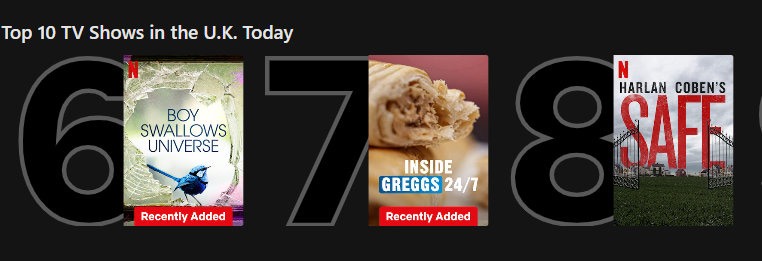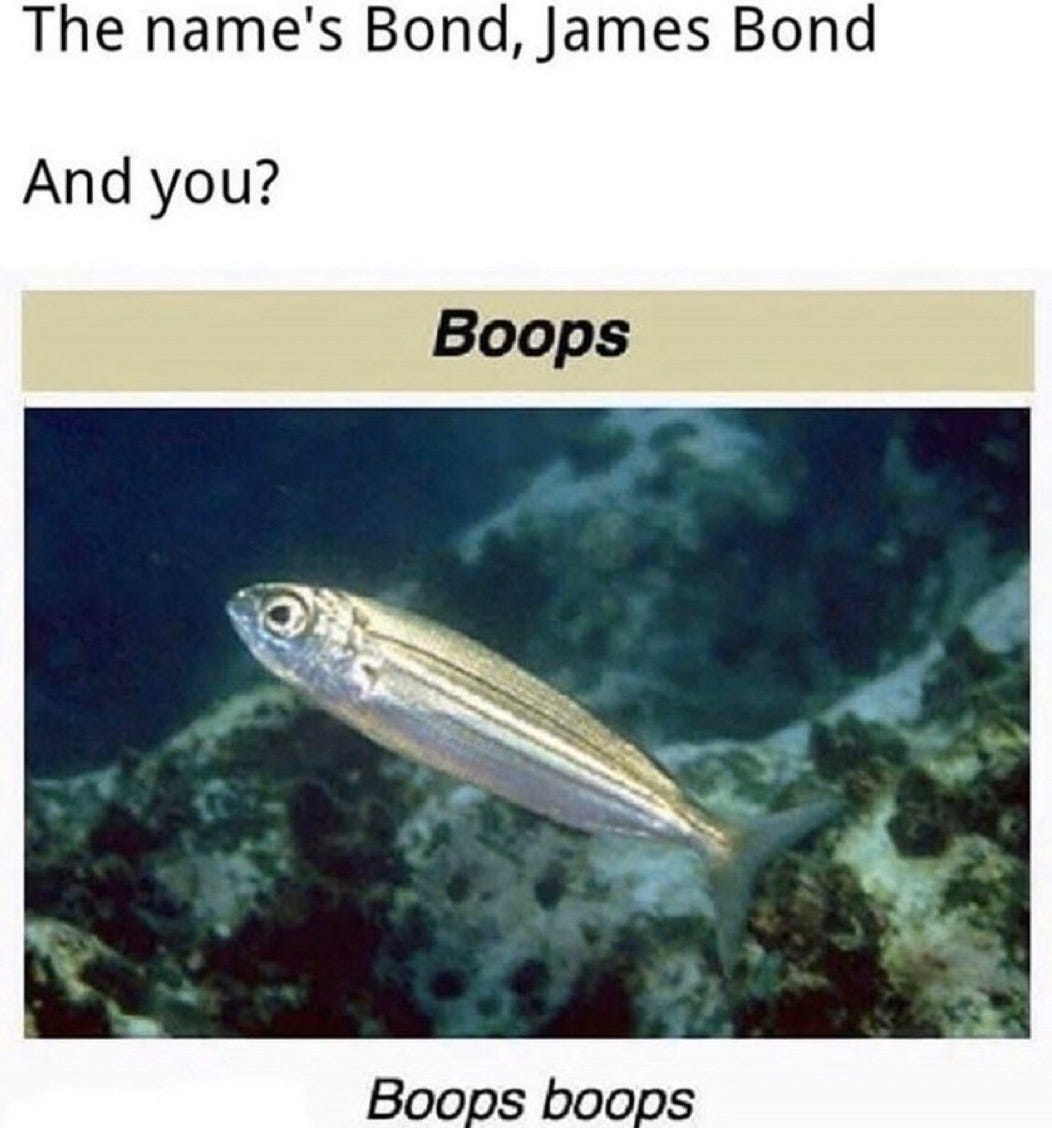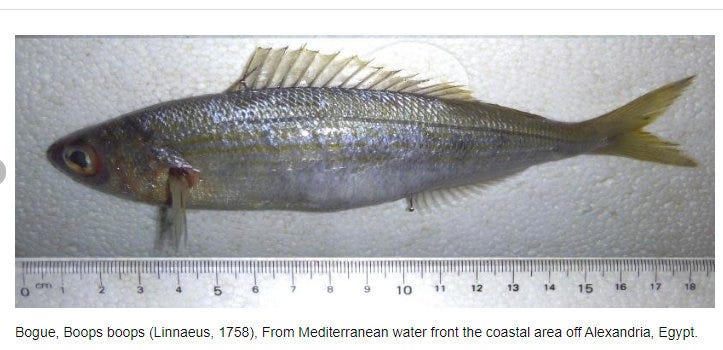Hello! This is Everything Is Amazing, a newsletter about science, curiosity, awe, and all the joys of a good “WOW!”
This isn’t the newsletter I was going to send today, which was the next instalment of this season’s look at islands. The drafting of that one took me in a rather unexpected direction - and now it’s turned into something of a sequel to this mind-bending piece from last year:
(So that’s your homework, if you want to get the maximum Wow out of that newsletter when it arrives.)
In the meantime: as a multitude of websites rendered almost unreadable with advertising will tell you, Wednesday 24th January was National Compliment Day in the United States!
According to the text that is suspiciously identical on all those website pages, it was invented on January 24th 1998 by Kathy Chamberlin of Hopkinton and Debby Hoffman of Concord, New Hampshire (I couldn’t find anything more on them, so I’m hoping Kathy & Debby actually exist) - and it’s designed to celebrate the powerful joys of saying a pleasantly approving thing to someone in a way that makes them feel better about their day.
This isn’t a thing we celebrate here in the UK, for two reasons.
Firstly, we leave that to World Compliment Day on March 1st. To be clear, we don’t celebrate that either, but we could if we wanted to, which is the point I’m making here.
And secondly, because when we pay compliments to non-Brits, they tend to look like insults (see below), so we prefer to avoid the whole thing altogether.
In my time as a writer, I’ve done my best to convey the casually hostile nature of British rhetoric to anyone who has encountered, stumbled over or backed away from my work. For example, this was my Christmas message this year to my followers on Threads:
I can’t claim this is an original thought - here’s Mark Manson saying much the same thing - but the implicit rudeness is all mine (and didn’t require any effort whatsoever, trust me).
Since most people on social media assumed I was just trying to be funny rather than unpleasant, this week I used National Compliment Day as an excuse to have another go:
Depending on your TV viewing habits, it may help to read all of those while looking at this picture:
And for context, “Greggs” is an incredibly popular British bakery chain. Any attempt I make to explain how popular Greggs is will fall short of the truth - so I’ll just point you towards the fact that right now on Netflix UK, the 7th most popular TV show, of all the TV shows on Netflix, is a documentary about Greggs:
So, that’s about the best in verbal approval you’ll get from us today, or any other day. Sorry. As much as we’d love to reinforce your delusions of adequacy…oh, there I go again. Sorry. (Sorry.)
Nevertheless, all this is a good opportunity to thank all the people who help me write this newsletter, by way of the following example.
On Tuesday, writer
posted this meme to Substack Notes:This is perfectly in keeping with Amie’s brand, as she’s the author of Beached, a marine conservation newsletter:
And because she clearly knows her stuff, surely Amie wouldn’t have posted it if it wasn’t funny because it was true?
But still, I had to learn more. Was there really, truly, a fish called “Boops” with the Latin name of Boops boops?
Oh, you bet there is. And it seems the Roman residents of Pompeii used them to top their proto-pizzas in a thoroughly unappealing-sounding way:
“The garum produced in Pompeii was notable for its quality. To make it, people would ferment fish—often boop boop, a species of sea bream also known as bogue—in salt and sometimes other spices for as long as three months. As the flesh decomposes, the bones sink, leaving a liquid, the garum, on top.”
- “Is that an ancient pizza? Here’s what people really ate in Pompeii", Christina Sterbenz, National Geographic
So far, so delightful. But then I posted this meme to Threads (with a discovery hat-tip to Amie, because that’s always the right thing to do) and - oh, the replies.
It’s a nice reminder, yet again, that what this newsletter should be is collaborative. Or maybe that’s not the right term, as it suggests ownership. Maybe it’s like a Perpetual Stew that’s been cooking away for the last 3 years, and I’m just the guy who threw in the initial ingredients and is in charge of extra water and the wooden spoon - and a lot of the flavour is what some knowledgeable passers-by are throwing into the pot.
(Certainly, some of my favourite things I’ve published on here - the discussions around the questions What do you wish more people were curious about?, What would you do with your nerdiest year? and, earlier this month, What are you choosing to be enthusiastic about in 2024? - weren’t ‘written’ by me at all. I just topped them up and gave them an occasional stir.)
This nicely mirrors how good science works. In practice, it’s so rarely the popular stereotype of the solitary genius with all the answers fighting the system that has all the wrong ones - and it seems there’s still an ongoing struggle to reconcile our love for narrative individualism above collective that can affect how science stories get covered (“yes yes, I get it was a team effort, but who DISCOVERED it? I need a face for this story or my editor won’t be happy”).
(This is also why I love the recent shift towards character ensembles in science fiction, as in The Expanse and Apple TV’s For All Mankind, which I’ve raved about previously.)
Like much of science in practice, this newsletter would be a lot less interesting, a lot stupider, and - most damningly - far more frequently wrong in a way that doesn’t get publicly corrected if I just relied on my own opinions, assumptions and woefully incomplete learnings.
So, I’m grateful, every time you weigh in.
Thank you.
(Yes, that’s me paying you a compliment. Don’t get used to it. *glares*)
And one final point, since this is a science newsletter and you really should keep reminding me of this: I’ve always been curious about the prevailing assumption that the best way to get young, impressionable people to learn something very quickly is to terrorize them into fearful compliance.
Every time I’d looked into it, I’d found plenty of research to suggest that yes, the “stick” approach might work best for getting people to change their behaviour, which is why it’s so hot in the military - but what about the quality their learning? So I was fascinated by this study from 2012, looking at the role of the social reward of praise (ie. paying someone a compliment) on motor-training exercises.
As I’ve talked about before, the best way to learn something new is to be unusually self-motivated to do so. That’s why the ‘information gap’ effect that powers curiosity - and, alas, hooks us with clickbait hogwash - is so interesting: it’s both a yearning and an irritation, a delicious smell on the breeze and a stone in our shoe. It’s both carrot and stick - and maybe we all need both to be properly spurred onwards. (For a terrific overview of all this, read Ian Leslie’s Curious.)
But usually, most of the emphasis is on stick tactics. I mean, just look at that phrase “spurred” - to jab a piece of metal into a horse’s side to make it uncomfortable enough to obey you. Even our words choose violence.
This study suggests that carrots certainly work too:
“Participants who received praise for their own performance showed a significantly higher rate of offline improvement relative to other participants when performing a surprise recall test of the learned sequence.”
(‘Offline improvement’ means the consolidation of what we learn between practice sessions: the making of memories we can recall quick enough to be of practical use, and the ‘muscle-memory’ overcoming of our resistance to a novel bodily activity that starts us off as uncoordinated, enormously disheartened balls of frustrated rage, yelling at the piano when we’re trying to bang out something as simple as Chopsticks.)
All this also has bearing on what I’m writing in this season’s series just for paid subscribers on the science of human memory, so I’ll be digging a lot deeper into the published research. More soon.
And finally, here’s something I already knew intellectually, but seeing it like this, is just….just….
Oh Gerardus Mercator, what a number you’ve done on us.
See you next time!
- Mike













This wasn't Mike Sowden's worst newsletter.
This deserves the full British triumvirate. Not bad. Thank you so much. Sorry.